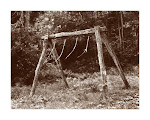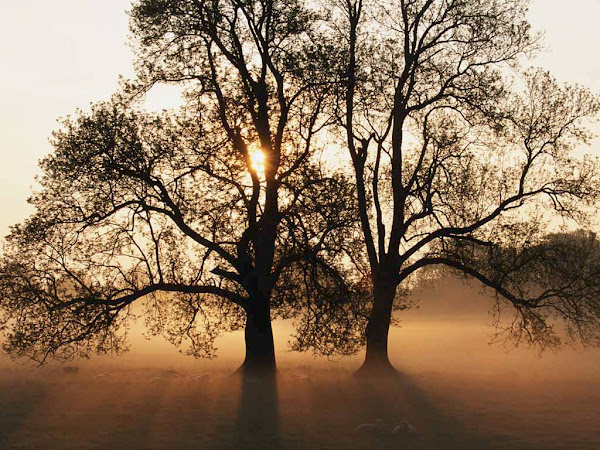The phrase, “It was the best of times, it was the worst of times.” seems to sum up the manner in which all who introspect reflect upon their age as they step back to ponder. Since the Fall, it appears our inner spectacles must always weigh the burden of beauty over against the hideous, truth against the deceit, and love over against the loathing. Our eating from this tree has somehow divided the world into two parts or so it seems-good & evil.
I am blessed at this point in my life with some spiritual companions who seem as heaven bent as I to figure at least some of these conundrums. One is my pastor Stan. I seldom see him when he is not embroiled in the larger dilemmas of life and quite frankly, his righteous struggle gives me hope that my own is not OCD. There must be some genome that some of us have that thrusts us into the cosmic ping pong of life unable or unwilling to relent to the absurdity and yet so aware of how much floats above and below us all.
We are in-between. We are juxtaposed. We are crossing not yet, hearing not yet, feeling not yet but oh so full of longing. So full of a yearning for closure, redemption, love, something to ease the weightiness of this seeming abyss looming up in our sight.
I am constantly teased about what I read and honestly, if I mentioned my regimen, much of it may finally prove the OCD diagnosis. Truly I am a confused man. I agree with Flaubert when he said, “I read in order to live.” My spirituality is so imperfect, answers so daily revised, my love so incomplete and my story still mostly unwritten. There is sadness in that statement. At this point in my life, all of the grand spiritual paths tell me I should be so much further along the journey. My own faith, Christianity, sometimes is offered in such pristine finely packaged offerings and I find myself still thirsting after the tasting.
Thomas has been mythologized as the cosmic doubter but in the nowness of life, doubt seldom offers us a spot in the biblical hall of fame. In fact, my thought as I wrote that sentence was to call it the hall of shame. Doubt & suspicion in the world of western peoples is taught at every level in secondary and graduate school, no even in primary school and yet when one matures, they are somehow told to ignore the doubt or satiate it with consumer goods or the will to power.
There I go waxing philosophical but it is in moments where the story loses its inner force to move forward and the stuttering ensues that all the classical philosophical questions arise. Who are we? Why are we here? Or here is a good one, how do we even know we are here? I hate all these big questions but they reflect just how big this story is and how small untested dialogue and word offerings cheapen the very narrative of which we believers say we are a part.
There is a shift taking place. Maybe “the shift” is the acknowledgment of the beautiful chaos built into the very fabric of this universe. Maybe the seeming shape shifting of truth and lies, keeps us humble or broken. Maybe our need to know this way is why we were told not to eat the fruit. Now we are obsessively longing for the reasons we live when before our eating we felt no burden of proof. We had no shame of comparison and worth. We walked in the cool of the garden for we were loving this story rather than co writing it. Now the chroniclers of our age continue daily to add to the story and much like a stock report is an absurd reflection of life’s tentativeness, we can only see the chaos in its aftermath but we cannot predict its movement.
I am so prone towards going backward into some form of retrenchment. Moving forward into this never ending story is tiring to the soul but unquestionably the only elixir for doubt and suspicion. But when the disparity between an old story and the new one seems so far apart, the muse becomes a late night harasser of sorts. The 3:00 o’clock “hour of the wolf” appears literal as our very soul can be heard to wail. Is it our late night howling that like the wolf pack bring us back together? Or is like Ginsberg’s lament over the slaughtering of the innocents? Why are many lamenting and baying at the moons of institutions, rituals, beliefs, and well worn ways of being?
Is this merely the narcissistic whining of an age preoccupied with self or the spiritual craving for a small portion of some larger plot to be revealed? How much of the story do we get to really know? How much of our art is the soul projecting cinema on life? Neal Gabler in his work “Life the Movie” sees much of the formative nature of our story telling as mediated through the entertainment industry.
One can read Orwellian fears into that interpretation quite easily. Part of our search for story is a search for place. A search for personal naming and inheritance. Must we fight for a self or is it offered freely? Why are we so confused in these times about our very being? Is this the burden of the fall realized by the masses? Has our suspicion and doubt so attenuated our sense of story that we either despair in the search for narratives that guide and direct us or wily nilly pull one down from TV or the Internet and try it on. Have we finally blurred the lines between fantasy and reality or have they always been opaque and seen through a glass darkly?
Questions come with knowing. Maybe the agonizing believers experience over the desired certainty of their faith is less about certitude and more about the overwhelming sense of emptiness that can grab the soul unawares in fear. All my life, (I am the son of preacher man), I have been in proximity to the dissemination of truth claims. Right belief was offered to me as a spiritual prophylactic from the ways of the world and if I only would capitulate to the ways of the Spirit, I would find myself floating above the mundane struggles of the spiritual proletariat. Now in retrospect I sense, that as a small child, I became skilled at the storing up of claims that bolstered my parents desired certainty. I did not ask many questions. Those matters of course were not on the radar of a small lad but in my teens for sure I was asking a lot. Many of the queries were submerged in teenage angst and pushed through the cipher of my emerging sexuality and individuation. But my questions were real to me. They were less about rebellion and more about a more nuanced reading of the story. It was as if I kept getting the “Cliff Notes” on this exquisite account of life, time, and Father God instead of the more graceful renderings offered by poets, story tellers and novelists. I was asking not merely for the right beliefs but the manner in which I could believe in the right way. At some point in my teen years I began to wonder if all the “talking” about God was the problem. All this incessant debating. Peter Rollins, undoubtedly one of the emerging churches most articulate theological philosophers brings this exchange into focus when he juxtaposes the words of Wiggenstien with his experience with charismatic evangelicalism.
On one hand our talk of God can become prattle and arrogant chattering void of depth and humility. To this tendency one might agree with Wittgenstein when he said, “What we cannot speak about we must pass over in silence.” An homage to the shear incomprehensibility of the transcendent is alluded to here and my superficial entrance into mysticism tells me this is true. However, as Rollins, I am a child of evangelicalism and the charismatic renewal. Thus, God is one subject of whom I can never stop talking.
Are we at a point in the story where a paradoxical dialogue is the language that begins to emerge? Have we on one hand so colonized the name of God as Rollins says or is the “unspeakable” the very place where the story and the most compelling language of description is going to emerge? Is there a secret waiting to be told? Is there a heretical orthodoxy that is articulating the right way of belief rather than the right beliefs? Is this a sacred listening taking place?
Gerhard Lohfink so aptly states the results of moving away from all our gallant efforts and truly believing one place in time can become an outpost of holy eavesdropping.
“It can only be that God begins in a small way, at one single place in the world. There must be a place, visible, tangible, where the salvation of the world can begin: that is, where the world becomes what it is supposed to be according to God's plan. Beginning at that place, the new thing can spread abroad, but not through persuasion, not through indoctrination, not through violence. Everyone must have the opportunity to come and see. All must have the chance to behold and test this new thing. Then, if they want to, they can allow themselves to be drawn into the history of salvation that God is creating. Only in that way can their freedom be preserved. What drives them to the new thing cannot be force, not even moral pressure, but only the fascination of a world that is changed.Clearly, this change in the world must begin in human beings, but not at all by their seeking through heroic effort to make themselves the locus of the new, altered world; rather it begins when they listen to God, open themselves to God, and allow God to act."
Much of my recent spiritual pilgrimage has taken place within what Wendell Berry might call a sacred space. Since my early hippie years I have experienced and longed for community. Not merely a group of people who had like minded theology and ideas on the world and its transcendence but a people who truly lived life together. This dream has proven much more formidable in a world where individualism is paramount and even the community called the Church is fairly formed through the ideologies of capitalism, therapy, and technology. Much of this blog represents for me my final willingness to bring presence to my voice, to throw out my poems and stories and add one more hopefully unshrill voice to the cacophony. We are destined to converse through these pages if you are this far along. Here is a poem to soften the incessant inquiry.
The Color of Soul Making
Blue fire
Slipped into my room last night
Sighed heavily
Illuminated my labored breathing
And the shallow rise and fall of sorrow’s chest
As if both color and flame could speak
Their words came forth
“We are your indigo angels.
In this place most call a desert
Your sister the white Iris blooms
In this dryness the soul flowers
Reverie fills the darkened cobalt horizon
Lovers held in suspension
Melt into each other
And weep with longing
Here imagination burns a cerulean glow
Melancholy marries Kandinsky
And all this pondering rekindles
A thousand years of exile
In the unreflective underworld of black and white.”
Tuesday, August 19, 2008
Subscribe to:
Post Comments (Atom)






No comments:
Post a Comment